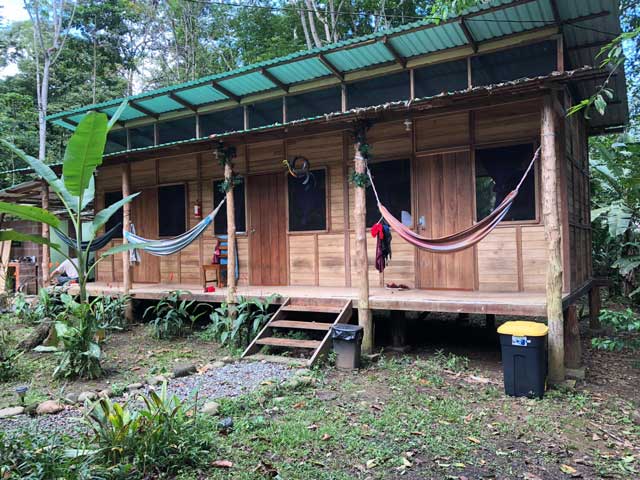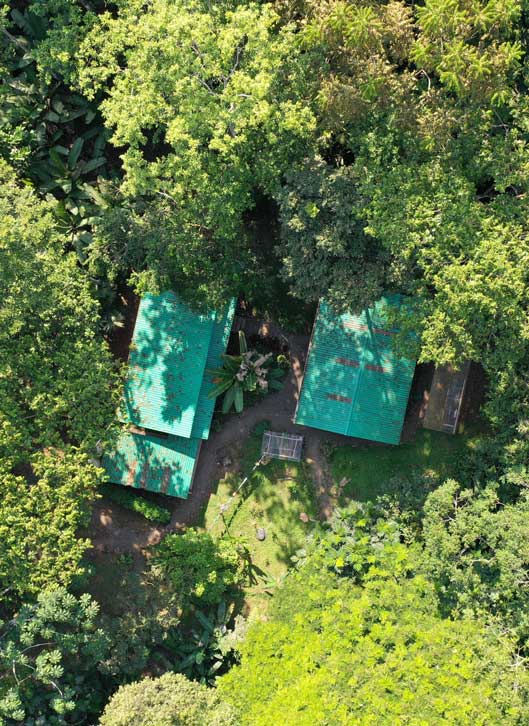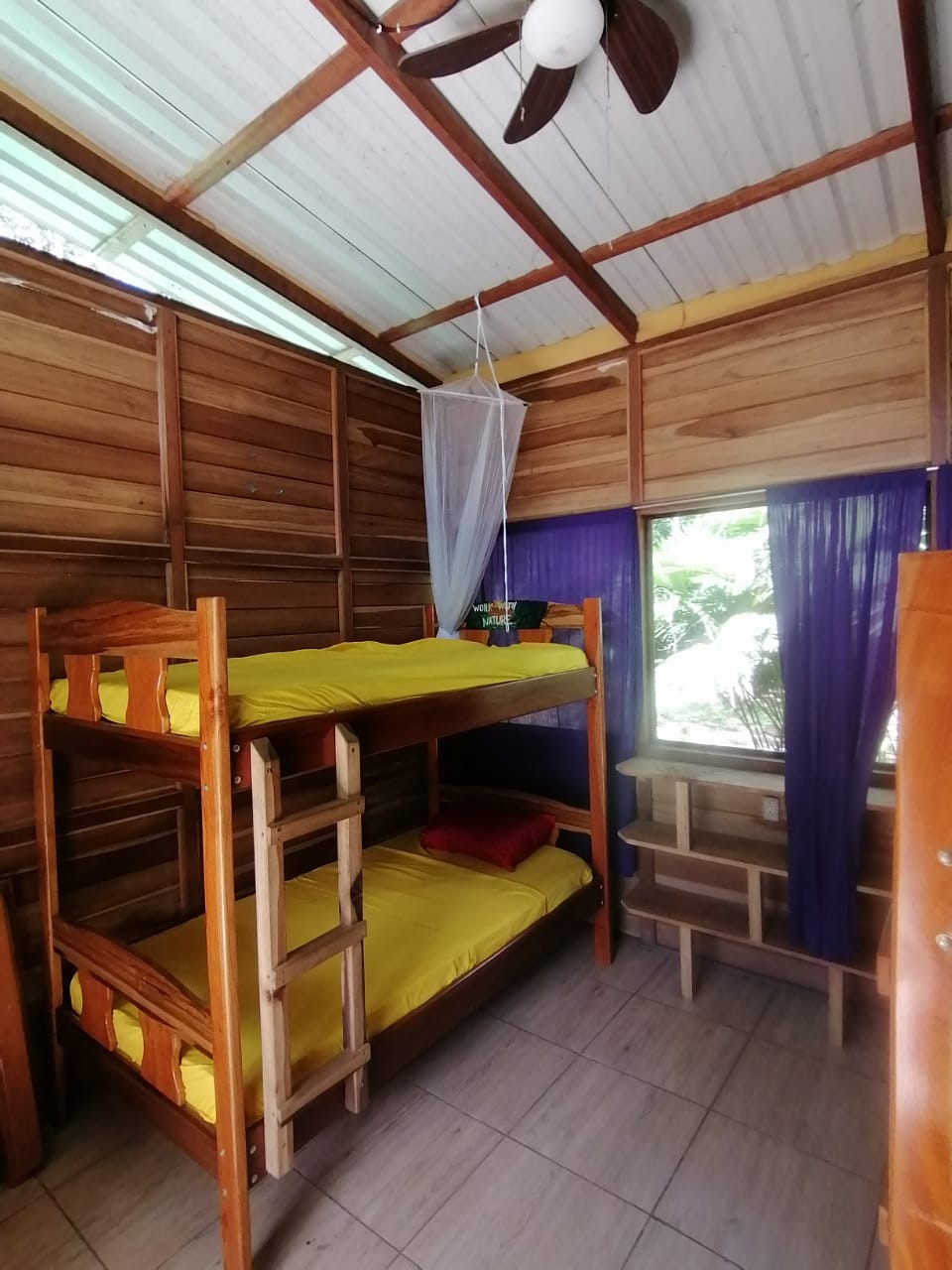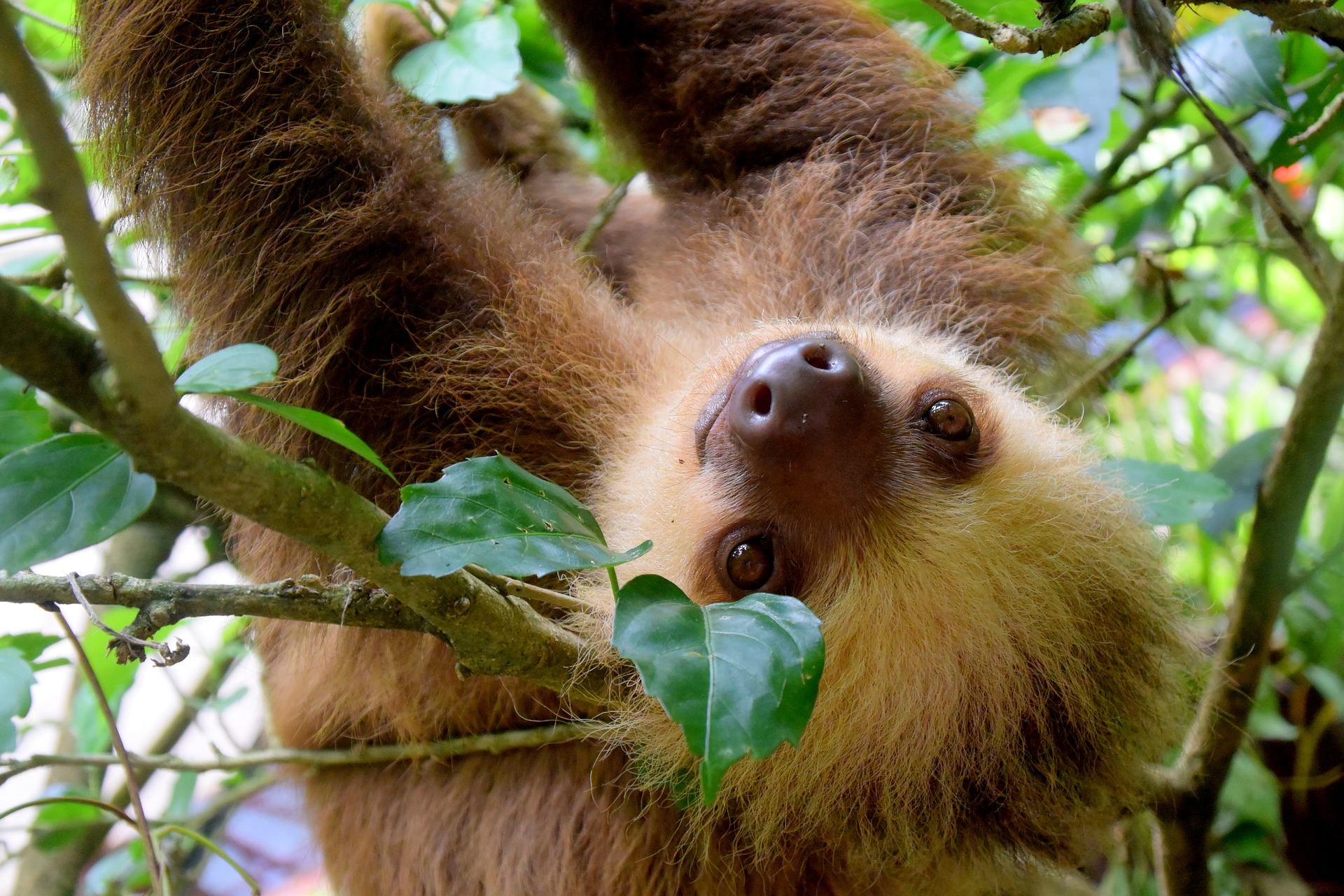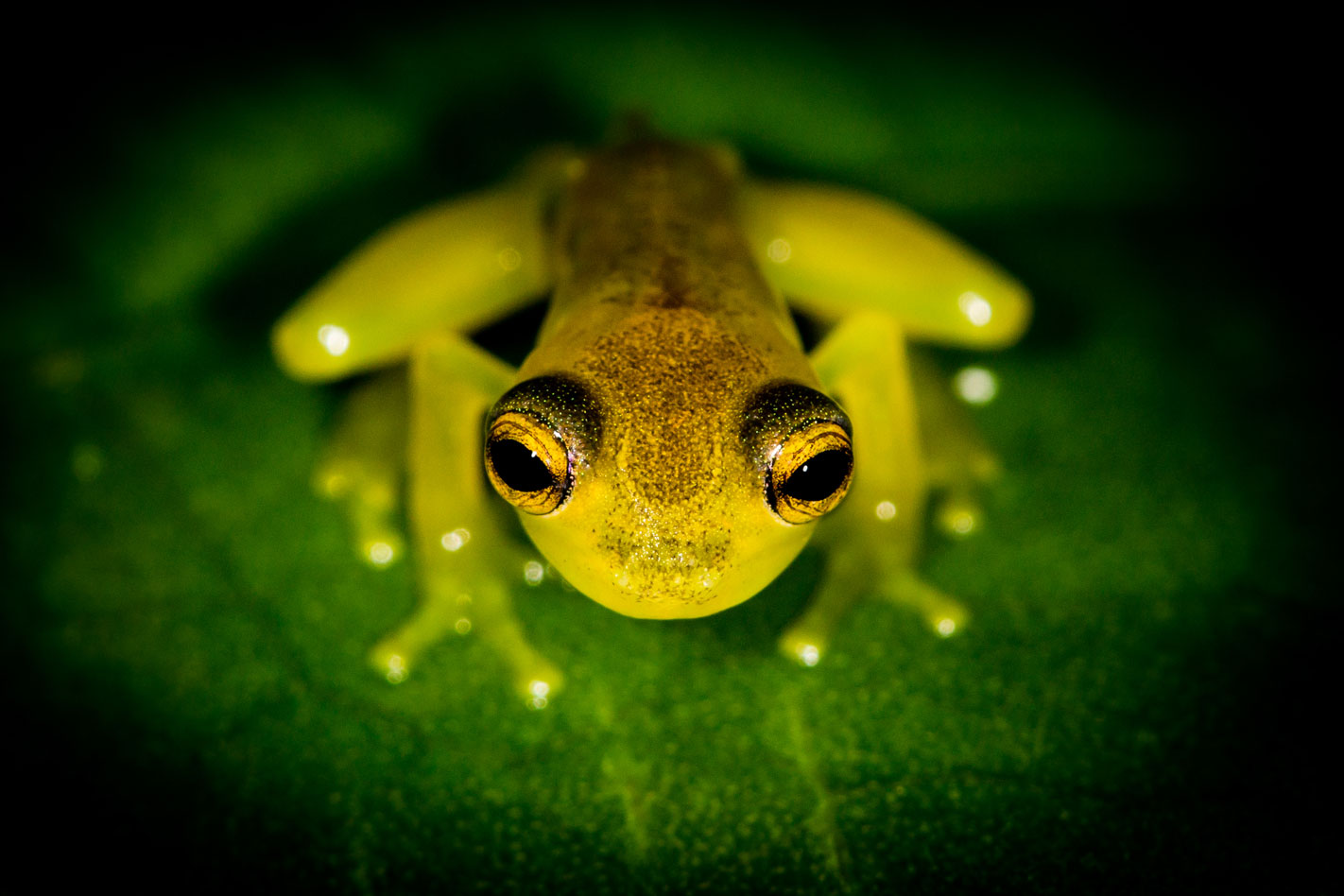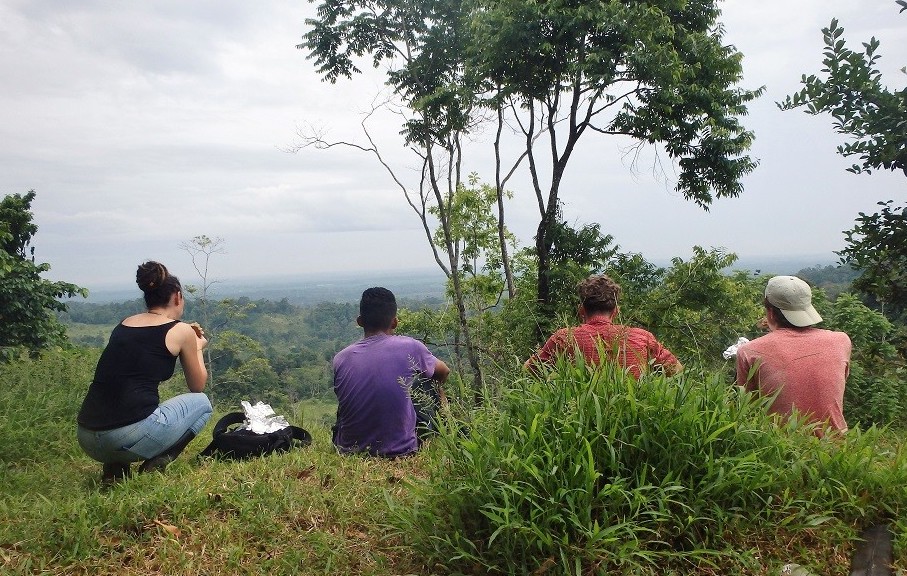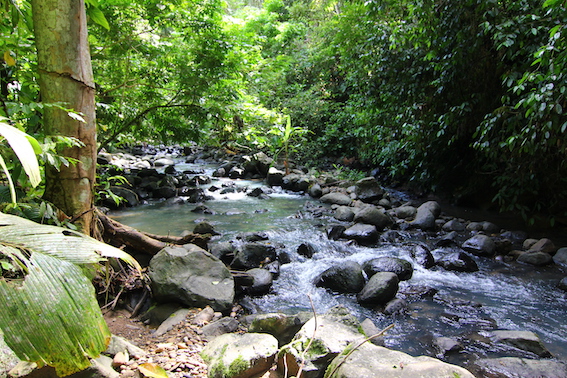rainforest conservation

general overview
The project’s objective is to learn with and from one another. By sharing knowledge and research, the project grows and has a positive impact on the forest, the volunteers and the local community.
| Title | Address | Description |
|---|---|---|
Costa Rica | barbilla national park |

Caribbean rainforest

MINIMUM 3 WEEKs

wildlife conservation

1°TIME VOLUNTEER

no SPANISH NEEDED

+18 YEARS OLD
Rainforest Conservation
In the Caribbean, Costa Rica
It all started with two Dutch guys who love nature and had a life-changing experience several years ago, while doing volunteer work themselves. They decided to start a foundation and purchase land, where they started a project that would protect the eco-system by conserving nature and supporting the local community.
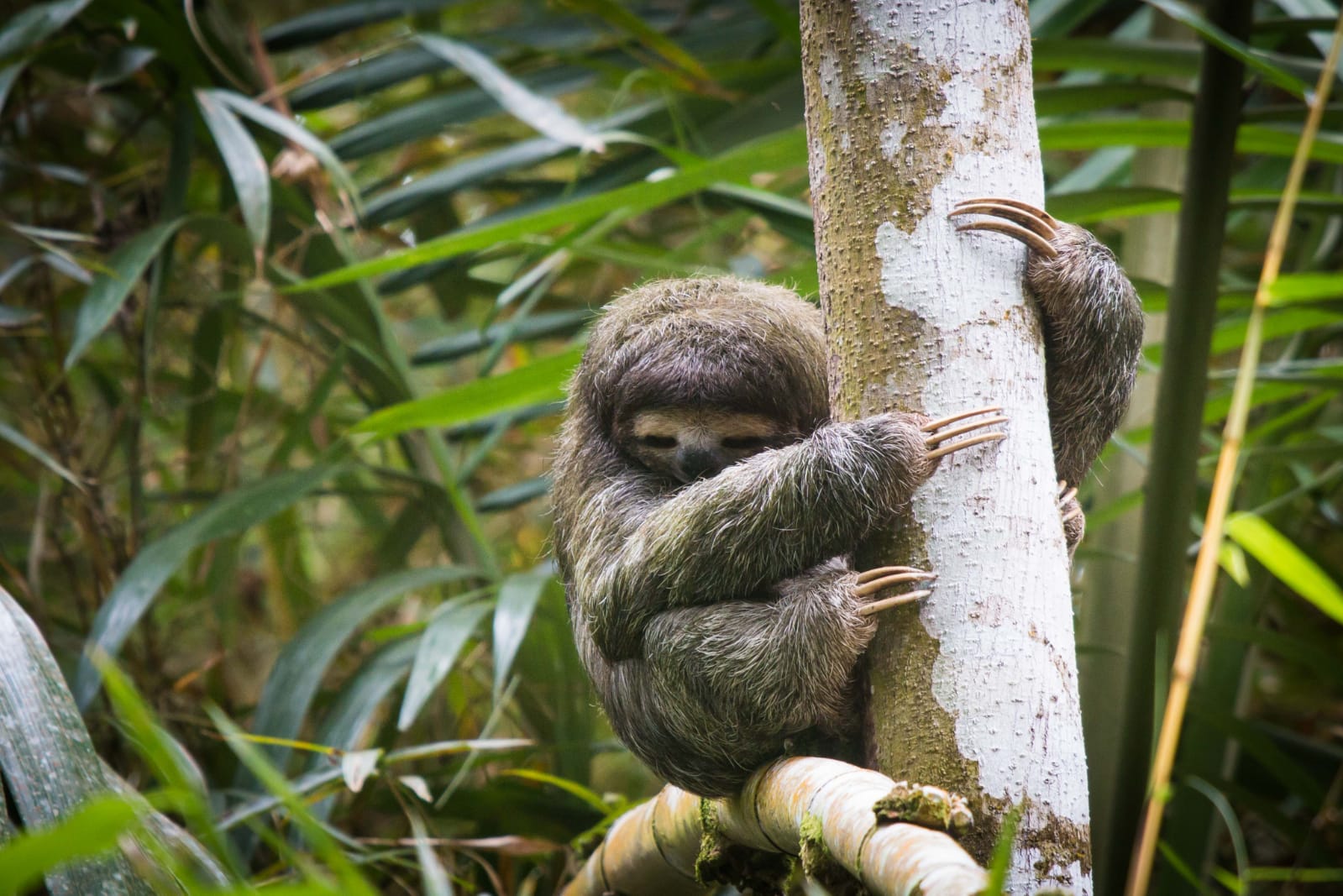
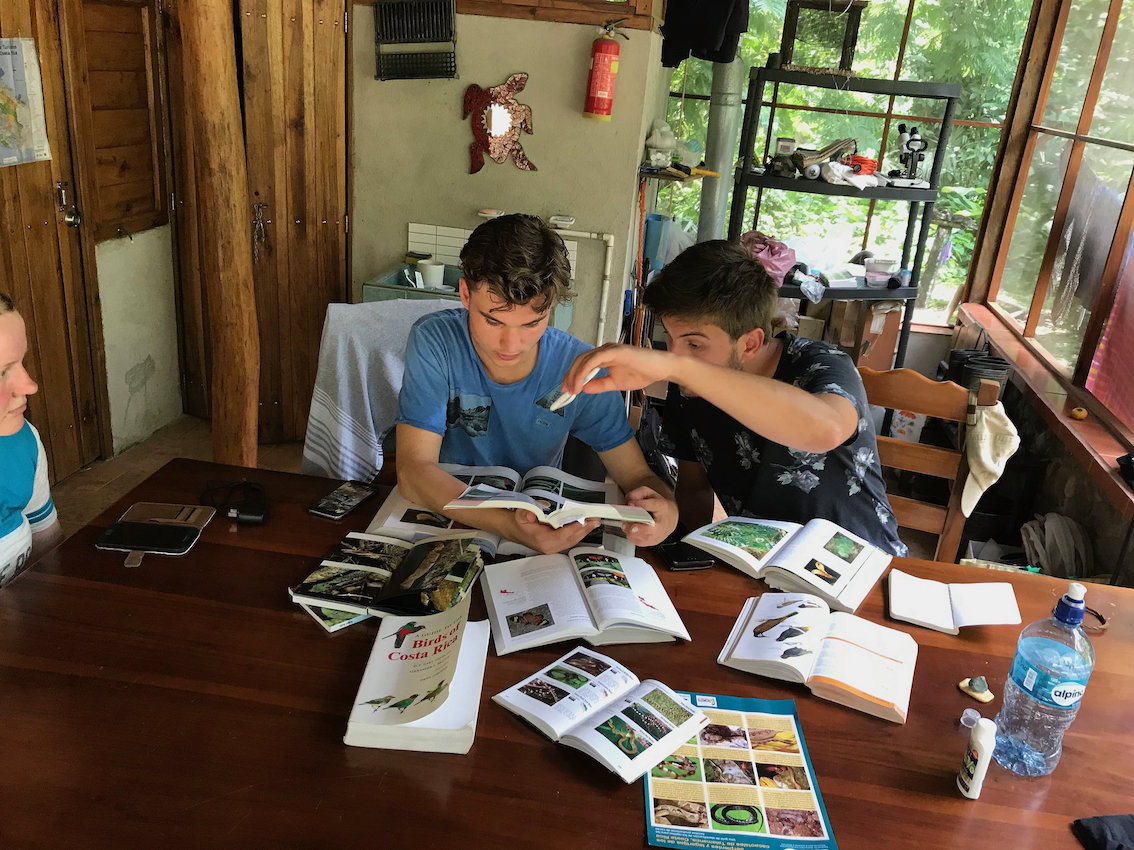
The conservation project and foundation, now owns and protects 140 hectares of wildlife reserve and growing. The objective of the project is to understand exactly what it is that they are protecting, what the threats are, and which measures need to be taken to have the biggest possible sustainable impact for both nature and human beings alike. The goal is to increase their reserve to 2000 hectares of rainforest to protect and preserve. As well as to connect with the local population, helping them with alternatives, to prevent logging and illegal activities like hunting.
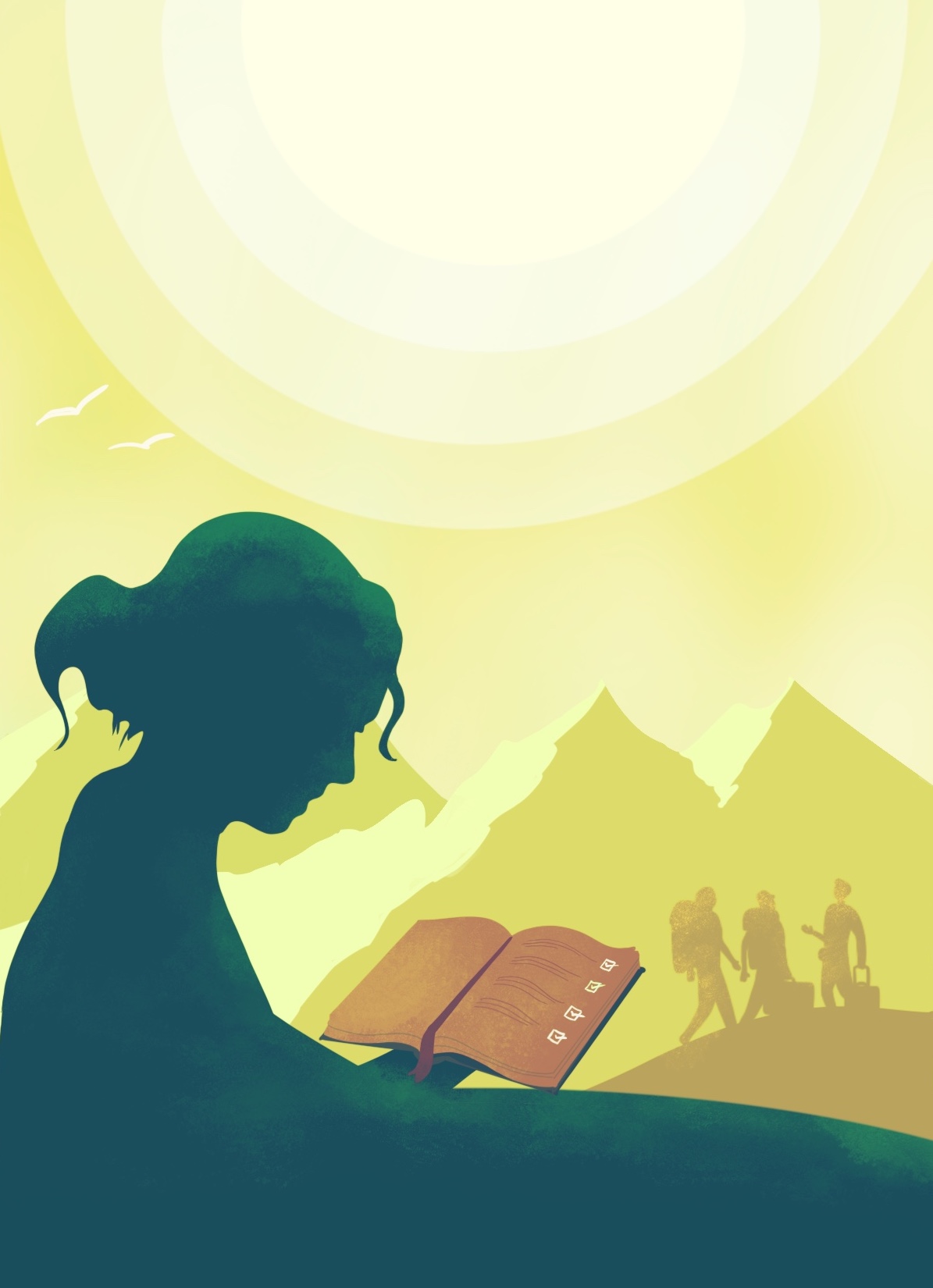
What is included?
- Project donation
- Orientation meeting
- Local support volunteer coordinator
- Accommodation in dorms at the project
- Three meals a day, tea and coffee (vegetarian options available)
- Transfer from San Jose to the project and back
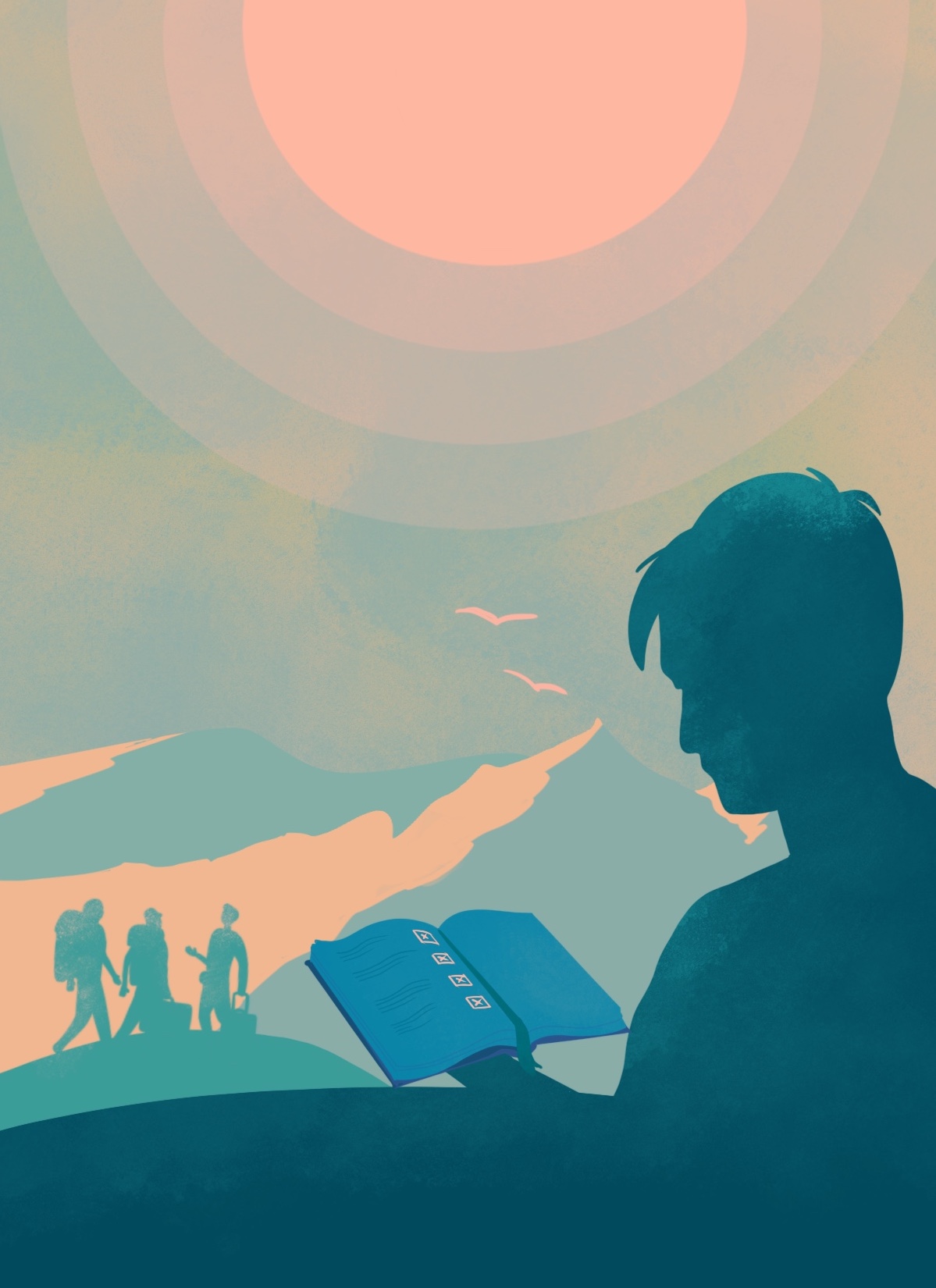
What is NOT included?
- Pre and post stay in San Jose
- Medical insurance (mandatory to confirm the reservation).
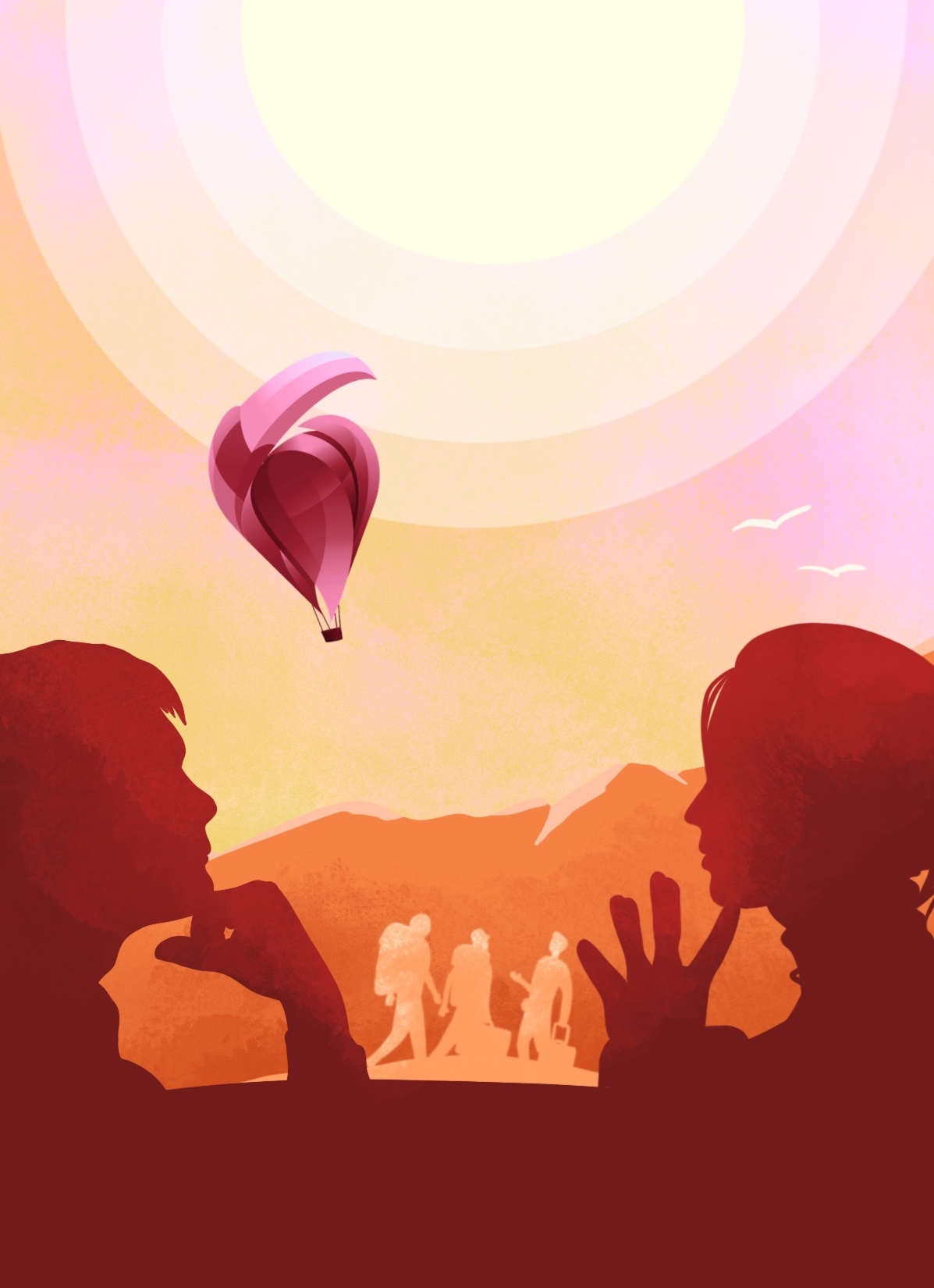
What to consider…
- Projects starts and ends on Mondays.
- Available all year round (except for the two weeks around Christmas and New Year)
- Longer stays are possible
- No WiFi and electricity (there is solar for basic lights).
- You can buy a local phone chip for basic communication. There is no town closeby, so you will need to buy what you will need during your time there before you arrive at the project.
- Work can be physically demanding
- Volunteers need to be responsible, disciplined, hardworking, motivated, and able to work in a team, flexible, patient, and pro-active. Must be physically and mentally fit, and able to walk at least 4 hrs. per day in a hot and tropical climate.
- No Spanish is needed
- Maximum of 12 volunteers
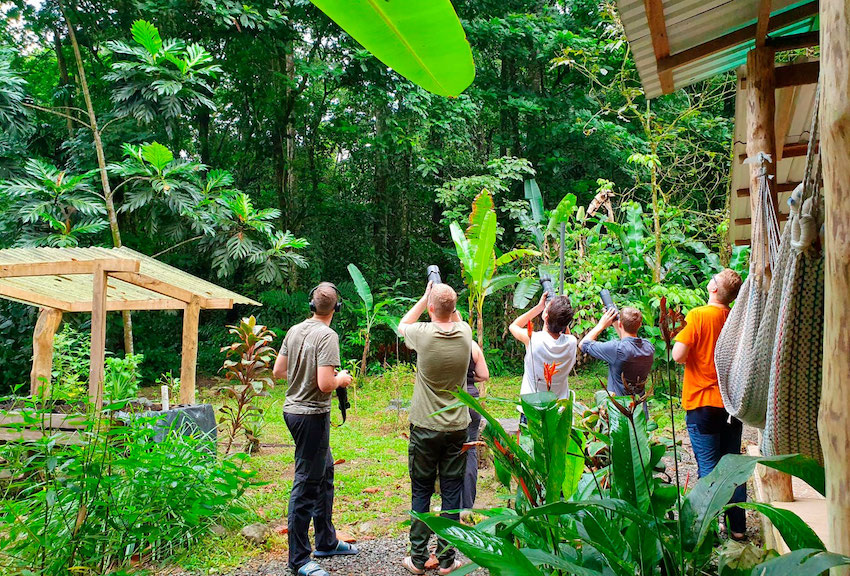
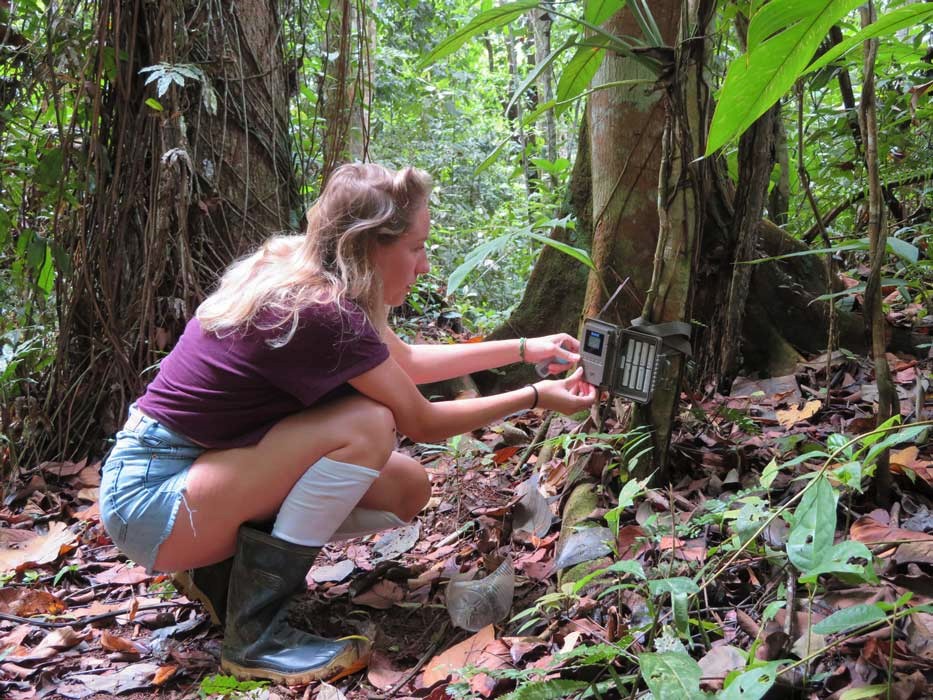
VOLUNTEER ACTIVITIES
Some examples of the activities:
- Collect data to map out the biodiversity in the project area
- Help the researchers with analyzing data and review data from camera traps
- Create pathways through the reserve and put-up information signs for visitors
- Monitor the germinated sprouts and track the development of planted trees
- Work in the permaculture organic garden
- Help with the English lessons at the school in town
- Collect garbage from the river that runs through the reserve
- Day-to-day operational duties: Clean of the accommodation, etc
A TYPICAL SCHEDULE
AS A VOLUNTEER
Volunteers work around 8 hours daily, 5 days per week. Your weekends are free.
Breakfast is served at 7am and will be a typical Costa Rican dish. At 8am your day starts with a hike into the tropical rainforest reserve for about 3 hours to start accumulating data, conducting research and other projects (for example planting or measuring trees in the reforestation area).
There are also days that you will stay on the research project area to work in the organic vegetable garden, build a tree nursery, investigate collected bugs, make an inventory of the butterflies or for example make chocolate from the cacao you collected.
Lunch is served at 12.30 after which the afternoon is usually spent by processing data, analyzing the trap cam video’s, studying the collected dung-beetles or frog pictures, writing up research or working in the garden.
5 pm a lovely dinner is served. After dinner you can chat with the other volunteers and students in the community house, play games, read or chill in a hammock. It gets dark in Costa Rica by 6pm and by 9pm the project expects you to be quiet and make up for a new and wonderful day to come.
There are daily operational duties too. Work at the project can be physically demanding, but no 2 days are the same!!
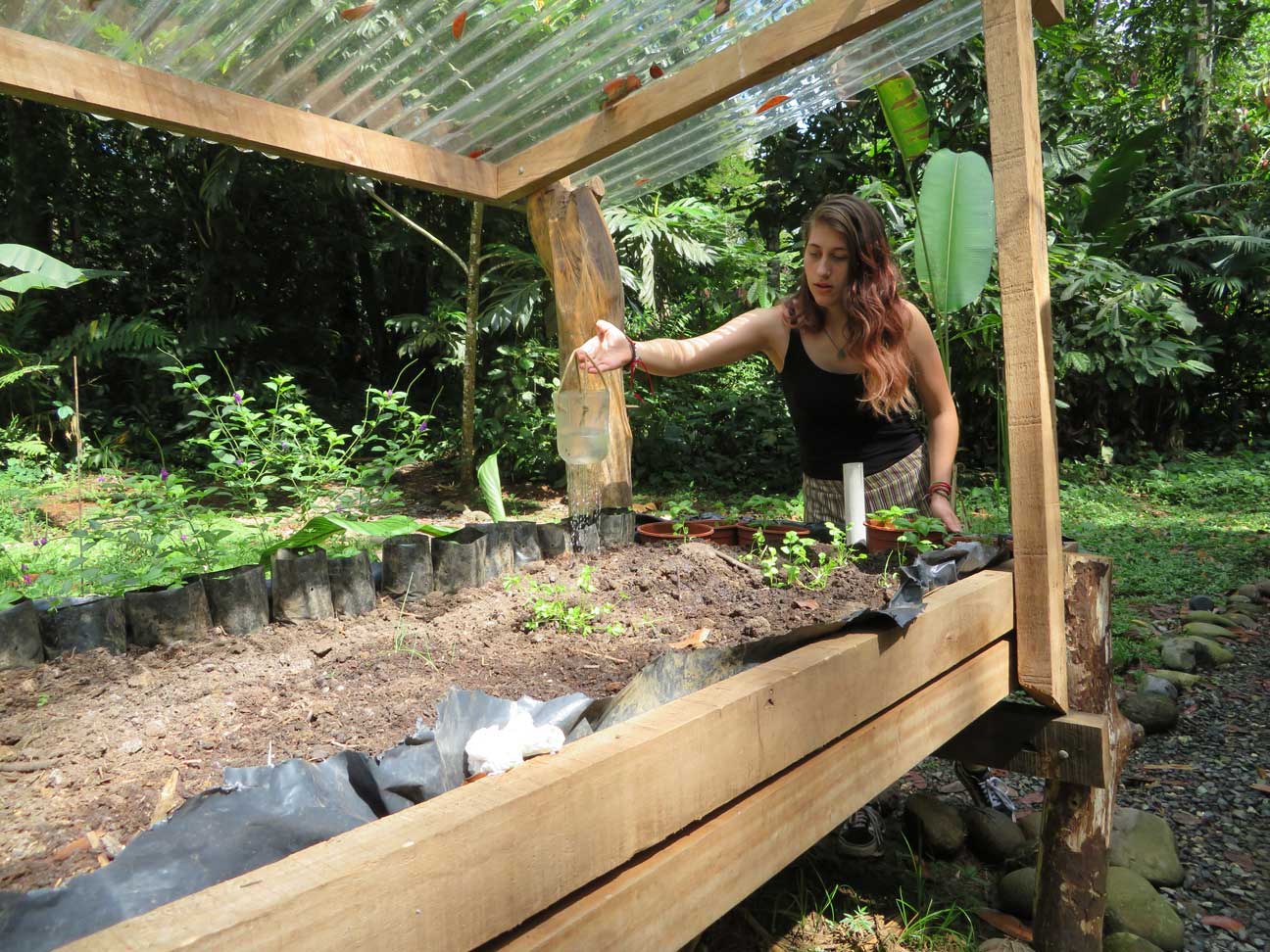
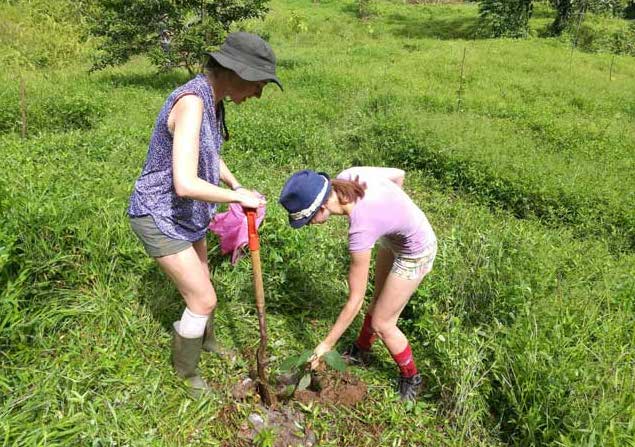
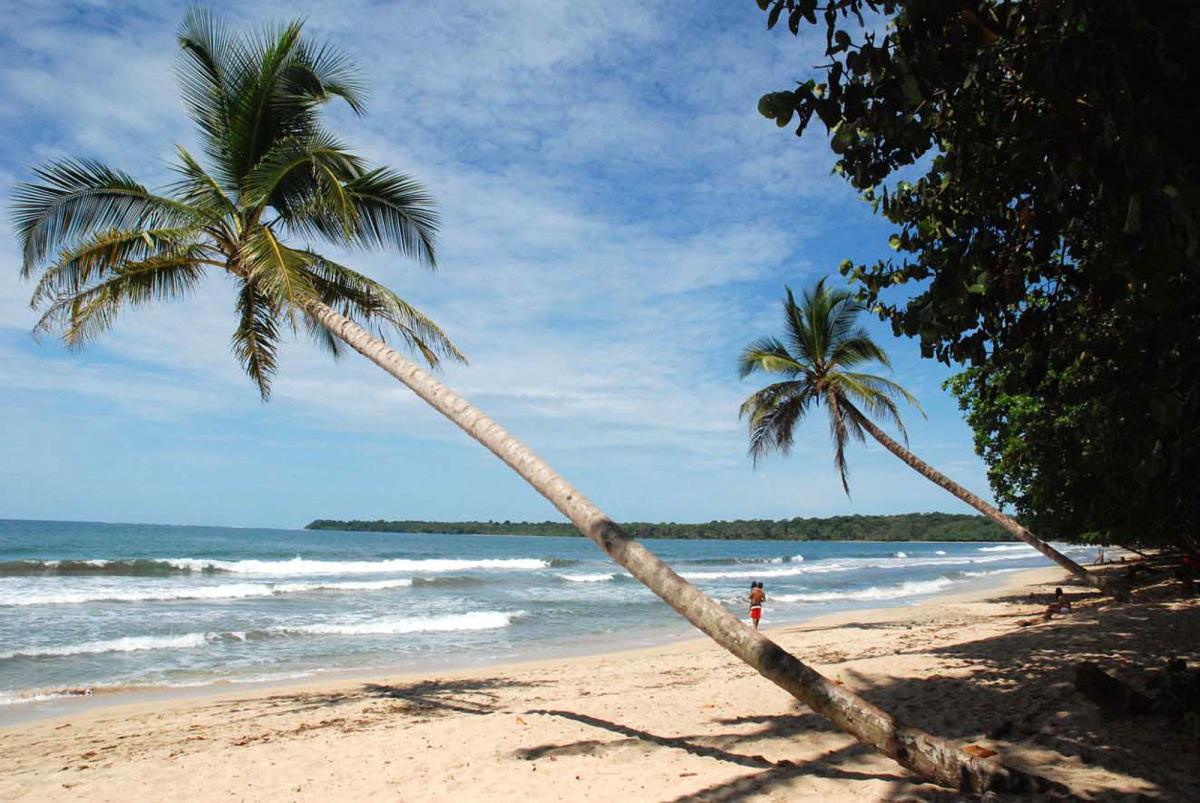
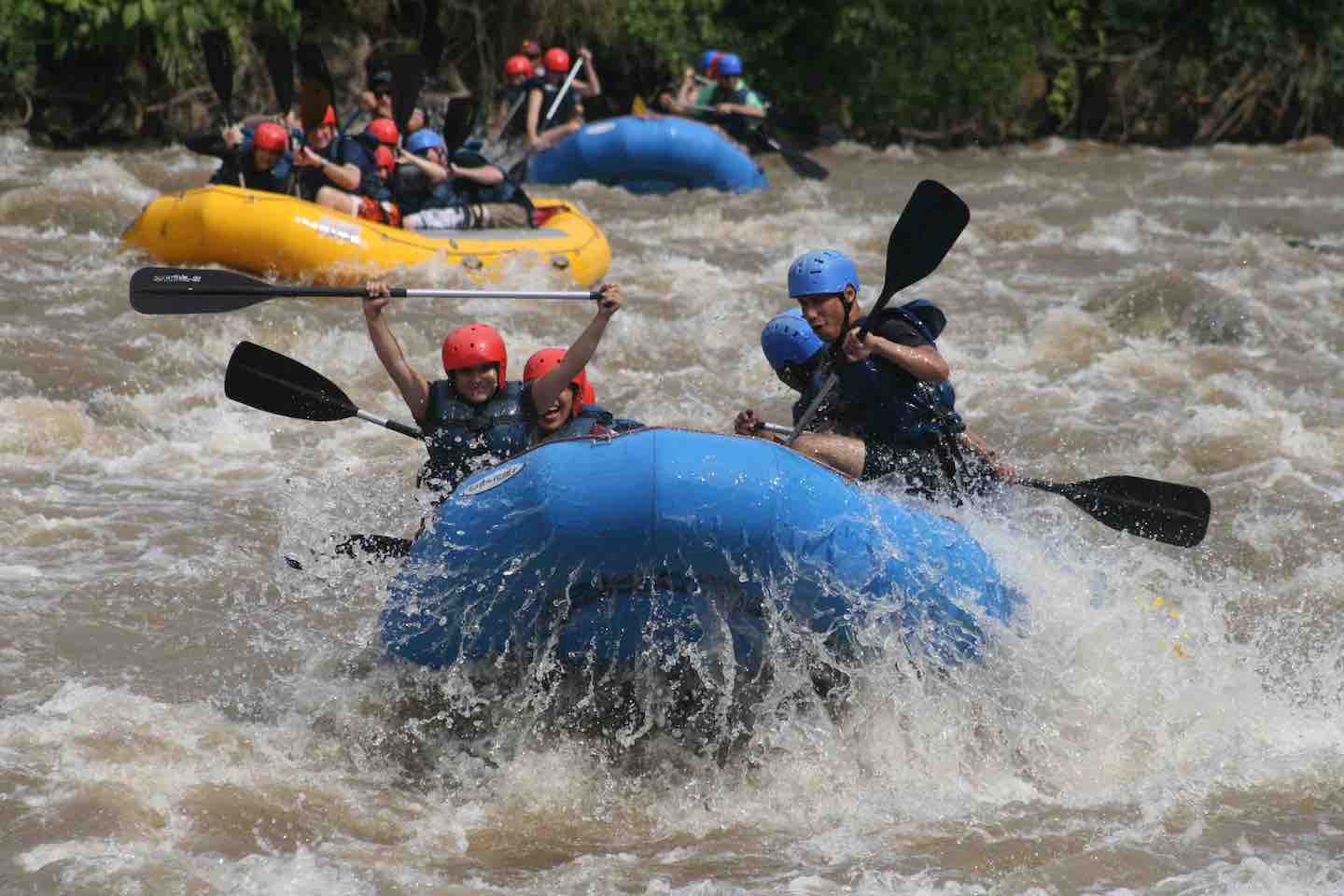
WHAT TO DO IN
YOUR FREE TIME
The project also organizes from time-to-time night tours to observe the jungle by night that you can participate in as well as yoga sessions and trail running in the morning.
During the weekends, you can plan a trip to the Caribbean beaches of Cahuita and Puerto Viejo, head out to the waterfalls, or go on a white-water rafting excursion, make a trip to the highlands of Turrialba, a boat tour through the canals of Tortuguero or head to the capital of San Jose.
The ACCOMMODATION
Besides the volunteer house, there is a public house/common area at the research center, with a dining room and hangout space with hammocks where you can eat, chill and meet with fellow volunteers and students. You’ll find a kitchen here as well, where the cook prepares 3 delicious meals a day.
The accommodation is surrounded by a beautiful tropical garden and rainforest, with a great diversity of plants and animals. From the porch, you will be able to see many animals, including colibris, toucans and butterflies. In the garden, you will find a big variety of fruit trees and depending on the season, you can find lots of different kind of fruits to eat like mangos, bananas, oranges, pineapples, starfruit and many more.
about
the Carribbean
The project is located about 3 hours from San Jose and 2 hours from Puerto Viejo. The private reserve is located in Costa Rica’s Caribbean lowlands between the Barbilla National Park, an Indian reservation, the village of San Miguel and banana plantations. Surrounded by a beautiful, tropical rainforest, there is only a very small town nearby that provides some basics, there is a mini-supermarket, a small local school, a church and a soccer field.
The tropical climate is hot (average 26°C) and humid. It has no clearly defined dry season.

